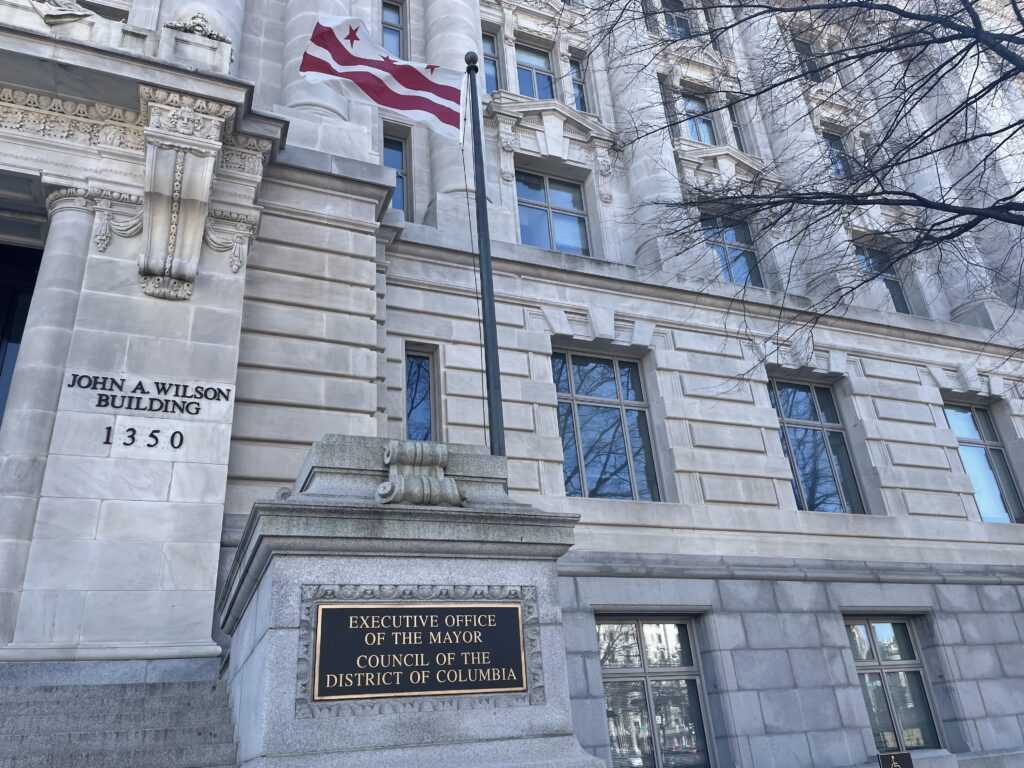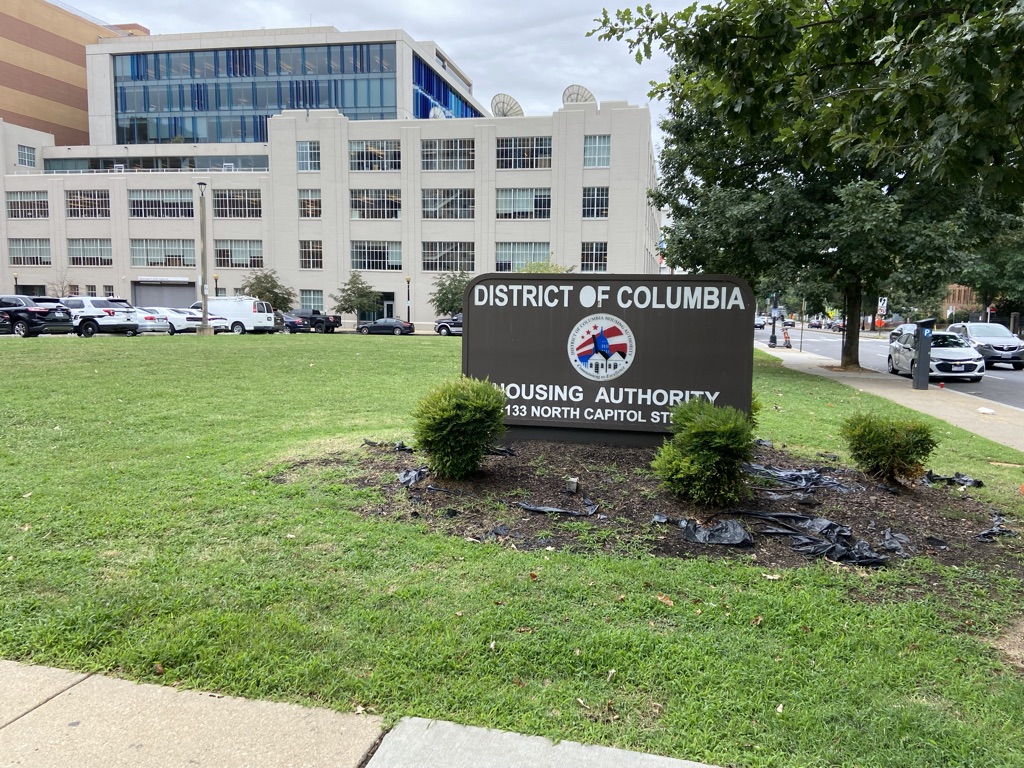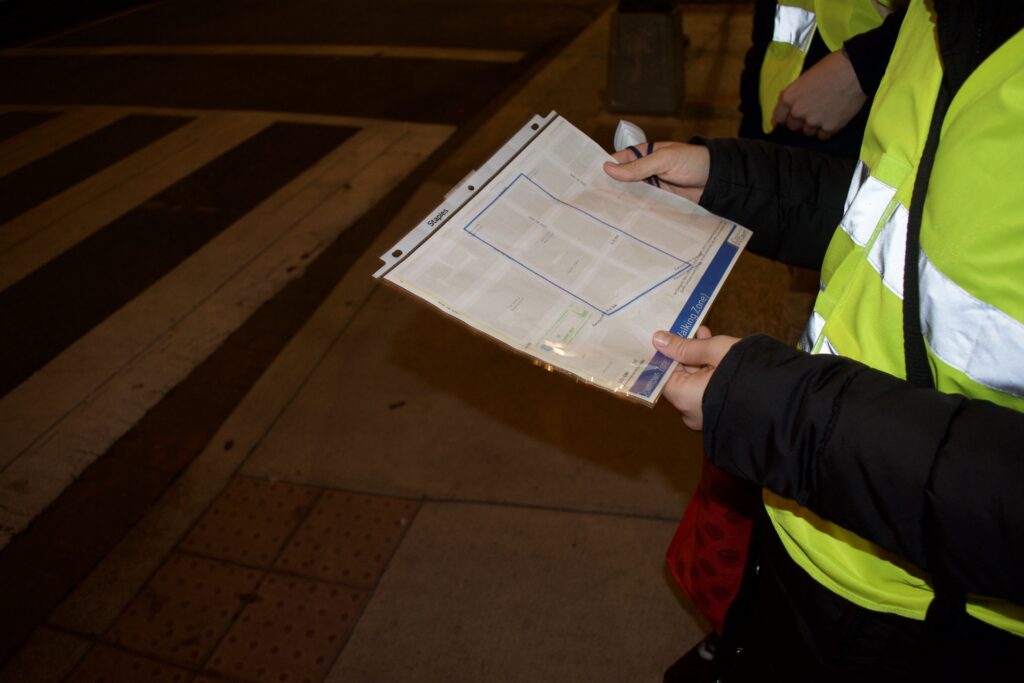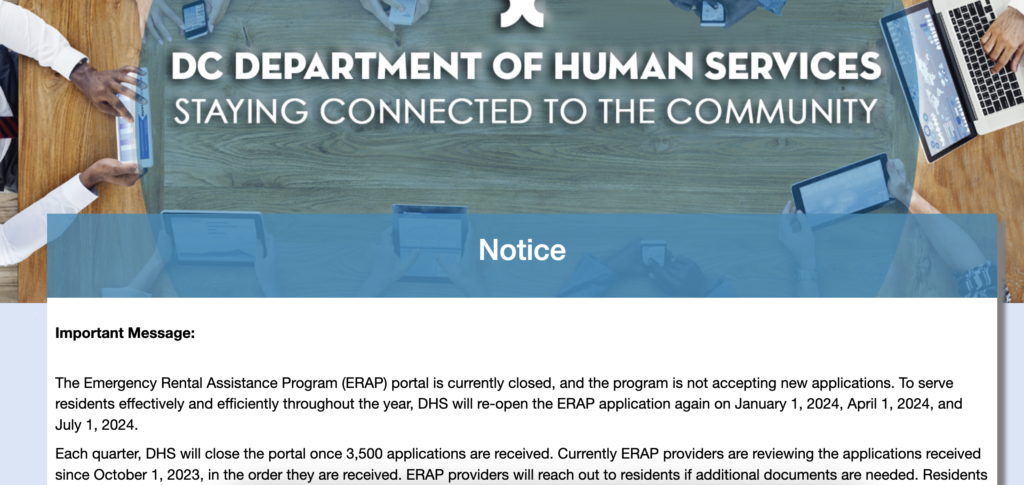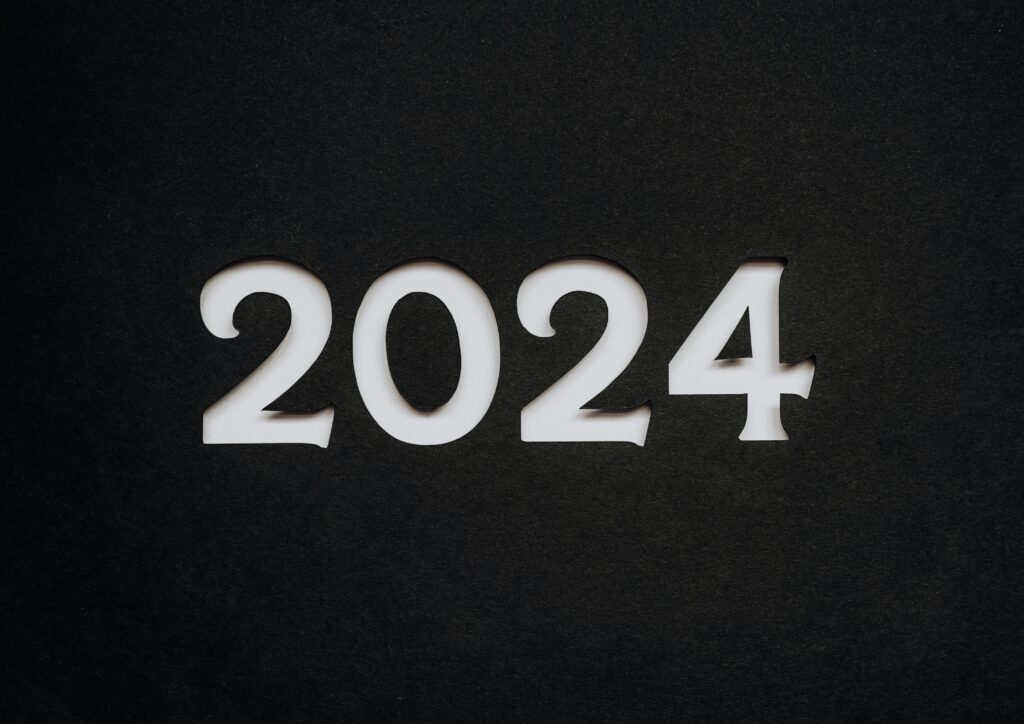D.C. Mayor Muriel Bowser released her $21 billion proposed budget for the 2025 fiscal year in early April, cutting funding for eviction prevention and homeless services and providing no new funding for housing vouchers. In committee hearings since the budget unveiling, D.C. councilmembers and housing advocates have said Bowser’s proposed budget cuts are unfairly balanced on the backs of D.C.’s most vulnerable residents.
In an April 3 hearing before the council, Bowser outlined her top priorities: public schools, public safety, and reviving downtown. To offset a $4 billion hole in the budget through fiscal year 2029, including a $700 million shortfall this year, she proposed around $500 million in cuts to city programs, some of which acutely impact those experiencing homelessness and housing insecurity. Bowser’s proposed budget would cut the Emergency Rental Assistance Program (ERAP), which supports District residents who are facing housing emergencies and evictions, in half, and slash the Access to Justice program, which provides legal aid for low-income families facing evictions, domestic violence, and other legal challenges.
The budget did not include funds for new housing vouchers, the city’s main tool to house people experiencing homelessness, for the first time since 2016. It would reduce funding for homeless services, nonprofit leaders testified, but does include funding for shelter renovations and development.
During the April 3 hearing, At-large Councilmember Robert White asked Bowser about the proposed cuts to ERAP, saying he feared the budget would hit the city’s most vulnerable populations twice — first with cuts to services, and then with sales tax hikes that stretch shoestring budgets thinner, compared to more progressive taxes on those in higher tax brackets. The city’s sales tax would increase from 6% to 6.5% in fiscal year 2026, before rising to 7% the following year.
“I think the vulnerable populations are going to feel this much more acutely than others, especially when we cut the programs they rely on,” White said.
Bowser challenged White to identify other cuts that could better account for the loss of billions in American Rescue Plan Act funds and the city’s projected decrease in revenue from sales taxes and income taxes, largely because of remote work taking employees away from the city, as the city’s Chief Financial Officer Glen Lee noted. Revenue is expected to slow to only 2% growth in the coming years, Bowser said.
“We cannot grow programs by 10% when you have 2% growth. It’s unsustainable. You wouldn’t do it in your household, you can’t do it here,” she testified.
Throughout the April 3 hearing, Bowser continued to hone in on ERAP. Her administration has long feuded with the council about the size of the program and allegations of fraud, suggesting residents have become dependent on ERAP.
“What you will have done is conditioned people to say, ‘Don’t pay your rent,” said Bowser. “The government will do it for you.’ And it will never be enough.”
ERAP’s proposed budget is $20 million, a 50% cut to local funding in fiscal year 2024.
White disputed Bowser’s ERAP fraud claims at a Committee on Housing budget oversight hearing on April 5 and argued that it was a necessary program after hearing testimony from housing and economic justice advocacy organizations, homeless service providers, and people experiencing homelessness.
“There is no evidence of fraud,” White said. “What there is evidence of is that rents are going up much higher than incomes; there’s evidence that evictions are up; there’s evidence that legal programs that assist people in avoiding eviction are all now overstretched. So what we are seeing is a housing crisis, not a crisis of people gaming a system.”
Another big strain on the budget is $217 million over five years to refill the city’s local reserve fund. Bowser said ERAP was a last-minute cut to refill the reserve, or the CFO would not certify the budget.
D.C. Council Chairman Phil Mendelson challenged Lee on the consequences of an uncertified budget at the April 3 hearing and in a newsletter on April 19 said he would reject Lee’s demands and restore funding for ERAP and the Access to Justice program.
The proposed budget would fund several shelter renovations, including $64 million for a new annex facility at the Federal City Shelter, also known as the Community for Creative Non-Violence, to provide additional shelter capacity and permanent supportive housing; $23 million for renovations to the Naylor Road, V Street, Emery, and Madison shelters and small-scale improvements at other homeless shelters in the system; and $13 million for operating costs for two new non-congregate homeless shelter facilities, The Aston and 25 E Street. It also includes $12 million to continue providing long-term housing and case management to individuals and families who are chronically homeless or at imminent risk of becoming homeless.
The mayor’s executive summary of the proposed budget boasts $30 million in funding to maintain support for rental assistance through the Family Re-Housing Stabilization Program (FRSP) for families at imminent risk of homelessness. However, the Department of Human Services (DHS) operating budget notes the program will see a 17% decrease from the current year, with a proposed budget of $60.4 million.
Many housing and economic justice advocacy organizations and homeless service providers, such as the D.C. Fiscal Policy Institute, Empower DC, and Community of Hope shared fears the proposed budget would lead to an increase in people experiencing homelessness. At the budget oversight hearing, residents and advocates said the proposed budget for DHS would force already overburdened services to do more with less.
“By our initial estimates, there are almost $33 million in reduction of services for families,” President and CEO of Community of Hope Kelly McShane said. “The reason we’ve seen a decrease in the past in the number of families experiencing homelessness, is that funds have been invested in every step of the continuum: homelessness prevention, shelter, rapid rehousing, and this has all reduced the length of time in shelter, as well as the addition of permanent supportive housing. There are reductions in the budget for each one of those programs.”
The mayor’s budget proposes a 15% increase in the budget for DHS, from $571.2 million last fiscal year to $659.4 million this coming year. At the hearing, White said the budget increase was a result of a new DHS truancy program and the addition of the Office of Migrant Services, which weren’t in DHS’s budget last year. Without the combined $47 million in funds from those programs, DHS would receive only a 4% increase.
One of the programs that won’t grow is the Permanent Supportive Housing Voucher program, which provides housing for people who have experienced homelessness for multiple years. As part of her testimony to the housing committee, DHS Director Laura Green Zeilinger said that despite the demand for additional vouchers, the budget shouldn’t allocate more money to the program than the agency can use in a fiscal year.
D.C. has struggled to use permanent supportive housing vouchers in recent years and continues to make promises to do better. “We understand the challenge and do not sit easy when we walk out of this building and see people who need housing and we know we have unused vouchers,” Zeilinger said. “It feels like a failure every day. We also know people are moving in every day and that is also to be celebrated.”
Budget Director Jenny Reed told the council at the budget unveiling that she expects to have all existing housing vouchers leased by the end of 2025. This dovetails with DHS’s 2024 goals, submitted to the Committee on Housing, of leasing 60% of housing vouchers funded in FY 2023 and 85% of housing vouchers funded in FY 2022 by October of this year. But that only addresses those stuck in limbo with a voucher, not those who have yet to receive a housing voucher at all.
There are 913 vouchers unassigned as of April 15, according to the information given at an Interagency Council on Homelessness community engagement meeting. DHS expects all unused vouchers to be matched by October, so people waiting in the voucher system can begin finding a home to lease. Kate Coventry, deputy director of legislative strategy for the DC Fiscal Policy Institute, said it’s paramount that the budget adds funding for new vouchers.
“If you become homeless the first day of 2025, you’re going to be homeless all year,” Coventry said. “We’re talking about very vulnerable individuals. People die because of lack of housing. It’s critical that we have vouchers available as people become homeless.”
The city council is scheduled to take its first vote on the budget on May 29.
